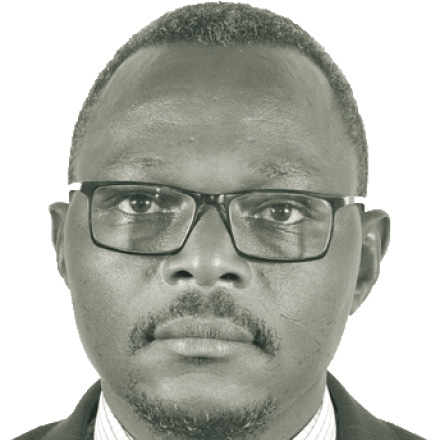ODA
Lessons learned

The reasoning of radical aid sceptics regularly includes the following points:
- Aid was invented to abolish poverty 70 years ago. Poverty persists, so aid must be useless.
- Aid spending is well meant, but it only makes receiving nations dependent and complacent and corrupts their elites.
There is a grain of truth to these arguments, but the critics’ arguments are overblown. First of all, it is important to stress that humanity has been making considerable progress (see D+C/E+Z e-paper 2018/04, p. 11). In 1970, some 60 % of 3.6 billion people on Earth lived in extreme poverty. In 2011, that was true of only 14 % of 7 billion people. In the past decades, statistics for school enrolment, infant mortality or access to safe drinking water improved considerably. It would be absurd to claim that all success stories are due to ODA, but it is equally absurd to state that ODA somehow blocked progress towards the goals it was meant to serve.
Some countries have made excellent use of aid. South Korea is an example. In the 1960s, its standard of life resembled that of African countries. Today, it is a member of the OECD, the umbrella organisation of rich countries. It “graduated” from being an aid recipient decades ago, and has since joined the donor community. Quite obviously, ODA did not block progress in South Korea.
Aid sceptics have a tendency to pick countries like the Central African Republic or Niger, where things have gone badly wrong, to prove aid is poisonous. Social disasters, however, normally do not only have one single cause. What aid sceptics regularly fail to do is explain how more successful countries managed to progress with aid receipts, if aid is poisonous. Indeed, many countries have made reasonably good use of ODA – including, for instance, Bangladesh, Ghana or Rwanda.
Development professionals like to emphasise that their job is not aid, but development cooperation. Where all parties involved accept their respective responsibilities, that term makes sense. In those places, very ambitious programmes can be launched, such as improving national revenue services, for instance. Unfortunately, such a sense of responsibility cannot be taken for granted, and corruption does indeed sometimes thwart aid efforts.
Things would be much easier if ODA was exclusively focused on fighting poverty and its causes in developing countries. In the real world, things are more blurry, because ODA is a component of foreign policymaking. Sometimes aid money is used in the pursuit of geostrategic goals. It can also be a component of policies designed to safeguard access to commodities or to ensure that refugees do not come to rich nations’ borders.
It is well understood that development only happens where there is a sense of national ownership. On their own, donor governments cannot bring about positive change in far-away countries. They depend on forces within the societies concerned assuming responsibility for a better future. To make ODA work, donors are well advised to accept their partners’ priorities and rely on their institutions. This doctrine was actually spelled out in the Paris Declaration on Aid Effectiveness of 2005.
In principle, donors should only cooperate with governments of developing countries if and when those governments adopt reasonable policies. This is easier said than done. The big challenge is that the need for humanitarian assistance is greatest where governments are irresponsible or – even worse – no longer have any impact. Where things go well, a nation will eventually graduate from being an ODA recipient the way South Korea did. Where disaster strikes, in contrast, the suffering is so great that humanitarian relief becomes indispensable. Therefore, donor governments keep getting involved in the affairs of developing countries with poor governance. Failed states matter in particular.
Andrew Mitchell, the former British secretary for international development, used to say that every pound invested in ODA delivered results. Such rhetoric is politically expedient, but it is nonsense. ODA is about risky investments. Some are successful; some fail.
Some aid critics argue that the rich nations are not responsible for the poverty of disadvantaged nations, so there is no reason why they should get involved. In this perspective, the wealth of prosperous consumer societies is not based on the exploitation of workers in developing countries. Again, this is not totally wrong. Shoppers in Frankfurt or San Francisco do not benefit from the poverty of Africa’s smallholder farmers. And while textile workers in Bangladesh are indeed exploited, they would be even worse off without their jobs – and that is why solidarity campaigns are not calling for boycotts.
In several ways, however, the rich world does live at the expense of the disadvantaged countries in several ways. Aid critics not only tend to downplay the global impacts of industrial-scale overfishing, for example, they also neglect that health-care systems in rich nations depend on skilled nurses and academically trained doctors from developing countries. The “brain drain” compounds health-care problems in Africa, Asia and Latin America. Moreover, the rich world has contributed most to the emissions that cause climate change, while the developing world is most exposed to the impacts.
Aid does not always succeed, but it is not the root problem. It can be part of the solution. In coming decades, climate finance will become ever more important. It will be essential to heed the lessons learned in ODA affairs, not to discontinue international transfers. In view of the global challenges, humankind needs more cross-border cooperation and burden sharing, not less.
Ultimately, the aid sceptics are promoting the kind of right-wing populism that urges rich nations to put their own interests first and leave others to fend for themselves. The strategy cannot work, because global problems will only become more daunting unless the international community tackles them in joint efforts.
Hans Dembowski is the editor in chief of D+C/E+Z.
euz.editor@fazit-communication.de














